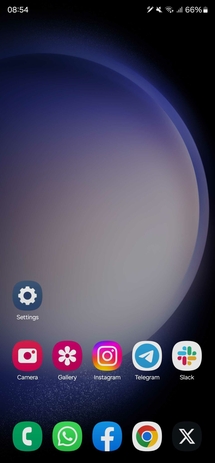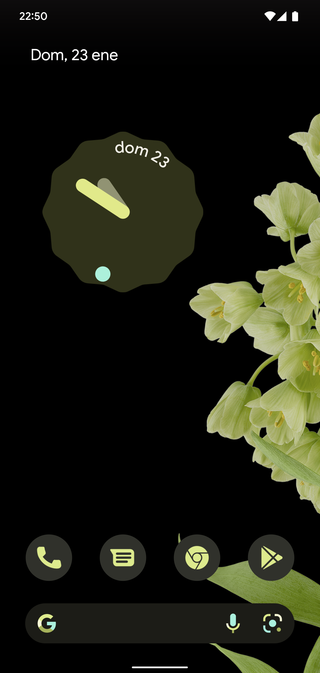Rooting is the process by which users of Android devices can attain privileged control over various subsystems of the device, usually smartphones. Because Android is based on a modified version of the Linux kernel, rooting an Android device gives similar access to administrative (superuser) permissions as on Linux or any other Unix-like operating system such as FreeBSD or macOS.

The Android Debug Bridge is a programming tool used for the debugging of Android-based devices. The daemon on the Android device connects with the server on the host PC over USB or TCP, which connects to the client that is used by the end-user over TCP. Made available as open-source software under the Apache License by Google since 2007, features include a shell and the possibility to make backups. The adb software is available for Windows, Linux and macOS. It has been misused by botnets and other malware, for which mitigations were developed such as RSA authentication and device whitelisting.

AOKP, short for Android Open Kang Project, is an open-source replacement distribution for smartphones and tablet computers based on the Android mobile operating system. The name is a play on the word kang and AOSP. The name was a joke, but it stuck. It was started as free and open-source software by Roman Birg based on the official releases of Android Open Source Project by Google, with added original and third-party code, features, and control.

Wear OS is a version of Google's Android operating system designed for smartwatches and other wearables. By pairing with mobile phones running Android version 6.0 "Marshmallow" or newer, or iOS version 10.0 or newer with limited support from Google's pairing application, Wear OS integrates Google Assistant technology and mobile notifications into a smartwatch form factor. Wear OS is closed-source, in contrast to the free and open-source Android.
Google Talkback is an accessibility service for the Android operating system that helps blind and visually impaired users to interact with their devices. It uses spoken words, vibration and other audible feedback to allow the user to know what is happening on the screen allowing the user to better interact with their device. The service is pre-installed on many Android devices, and it became part of the Android Accessibility Suite in 2017. According to the Google Play Store, the Android Accessibility Suite has been downloaded over five billion times, including devices that have the suite preinstalled.

Kali NetHunter is a free and open-source mobile penetration testing platform for Android devices, based on Kali Linux. Kali NetHunter is available for un-rooted devices, for rooted devices that have a standard recovery, and for rooted devices with custom recovery for which a NetHunter specific kernel is available (NetHunter). Official images are published by Offensive Security on their download page and are updated every quarter. NetHunter images with custom kernels are published for the most popular supported devices, such as Google Nexus, Samsung Galaxy and OnePlus. Many more models are supported, and images not published by Offensive Security can be generated using NetHunter build scripts. Kali NetHunter is maintained by a community of volunteers, and is funded by Offensive Security.

Blisk is a freemium Chromium-based web browser that aims to improve productivity and code quality by providing a wide array of tools for Web development and testing for different type of devices: desktop, tablet and mobile.

Samsung Internet Browser is a desktop and mobile web browser developed by Samsung Electronics, based on the open-source Chromium project. It comes pre-installed on Samsung Galaxy devices and, since 2015, has been available for download from Google Play for all Android devices. It is also available for their Tizen-based smartwatch via the Galaxy Store.

LineageOS is an Android-based operating system for smartphones, tablet computers, and set-top boxes, with mostly free and open-source software. It is the successor to CyanogenMod, from which it was forked in December 2016, when Cyanogen Inc. announced it was discontinuing development and shut down the infrastructure behind the project. Since Cyanogen Inc. retained the rights to the Cyanogen name, the project rebranded its fork as LineageOS.

One UI is a user interface (UI) developed by Samsung Electronics for its Android devices running Android 9 "Pie" and later. Succeeding Samsung Experience and TouchWiz, it is designed to make using larger smartphones easier and be more visually appealing. To provide more clarity, some elements of the UI are tweaked to match colors that are based on the color of the user's phone. It was announced at Samsung Developer Conference in 2018, and was unveiled in Galaxy Unpacked in February 2019 alongside the Galaxy S10 series, Galaxy Buds and the Galaxy Fold.

Android 10 is the tenth major release and the 17th version of the Android mobile operating system. It was first released as a developer preview on March 13, 2019, and was released publicly on September 3, 2019.

GrapheneOS is an Android-based, open source, privacy and security-focused mobile operating system for selected Google Pixel devices, including smartphones, tablets and foldables.
The Nokia 2.2 is a Nokia-branded entry-level Android smartphone released in June 2019. It is the successor to Nokia 2.1.

Google Messages is a text messaging software application developed by Google for its Android and Wear OS mobile operating systems, while it's also available via the Web.

The Samsung Galaxy S21 is a series of high end Android-based smartphones designed, developed, marketed, and manufactured by Samsung Electronics as part of its Galaxy S series. They collectively serve as the successor to the Samsung Galaxy S20 series. The first three smartphones were unveiled at Samsung's Galaxy Unpacked event on 14 January 2021, while the Fan Edition model was unveiled at Samsung's CES on 3 January 2022.

Bootloader unlocking is the process of disabling the bootloader security that makes secure boot possible. It can make advanced customizations possible, such as installing a custom firmware. On smartphones this can be a custom Android distribution or another mobile operating system. Some bootloaders are not locked at all, others can be unlocked using a standard command, others need assistance from the manufacturer. Some do not include an unlocking method and can only be unlocked through a software exploit.

SuperSU is a discontinued proprietary Android application that can keep track of the root permissions of apps, after the Android device has been rooted. SuperSU is generally installed through a custom recovery such as TWRP. SuperSU includes the option to undo the rooting. SuperSU cannot always reliably hide the rooting. The project includes a wrapper library written in Java called libsuperuser for different ways of calling the su binary.

The Samsung Galaxy S22 is a series of Android-based smartphones designed, developed, manufactured, and marketed by Samsung Electronics as part of its Galaxy S series. Unveiled at Samsung's Galaxy Unpacked event on 9 February 2022.

PixelExperience is a popular open-sourced custom ROM, or Android distribution, based on the stock Android AOSP that aims to provide a bloat-free, stock-android, Pixel-like experience to a wide range of Android devices. The project, initiated by a community of developers in 2017, focuses on delivering a clean, minimalistic, and visually appealing user interface reminiscent of Google's Pixel devices. Pixel Experience is designed to be as close to stock Android as possible, with a focus on reliability, security, stability, performance, battery life, and useful customizations.
Action Launcher is an application launcher mobile app for Android developed by Chris Lacy under the Australian company "Action Launcher Pty. Ltd.". Like other Android launcher apps, the program adds a graphical layer on top of the operating system's default application launcher to provide the user with an alternate way of navigating through the operating system, often adding features that the default launcher lacks.















